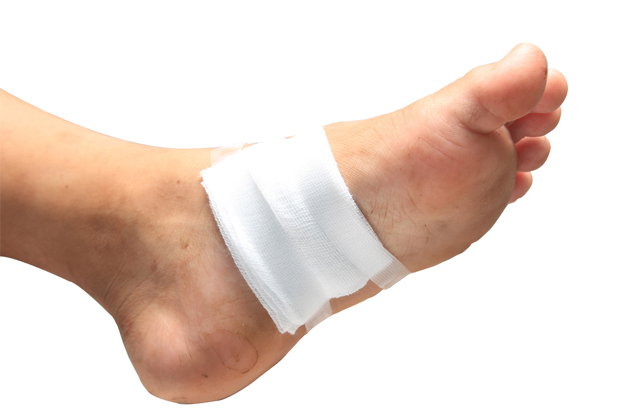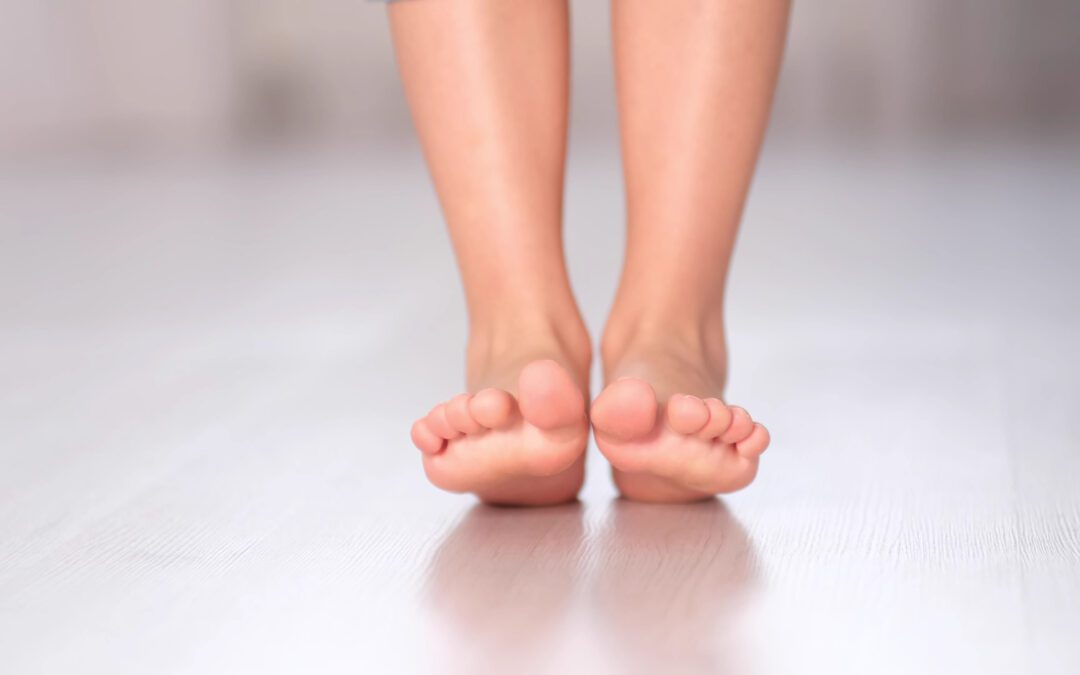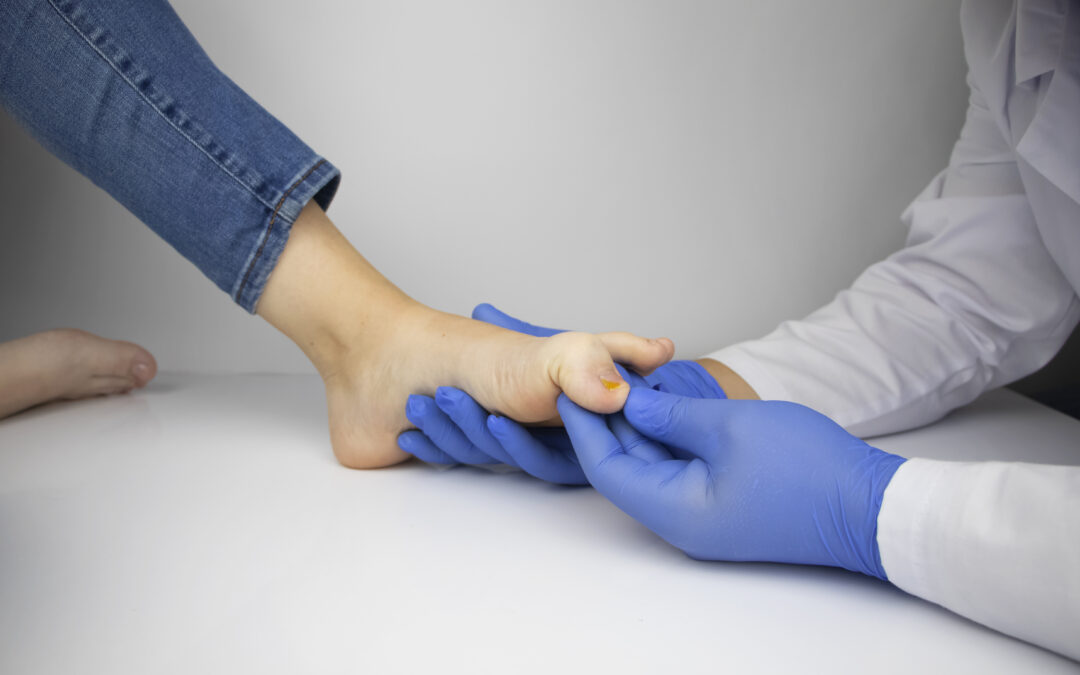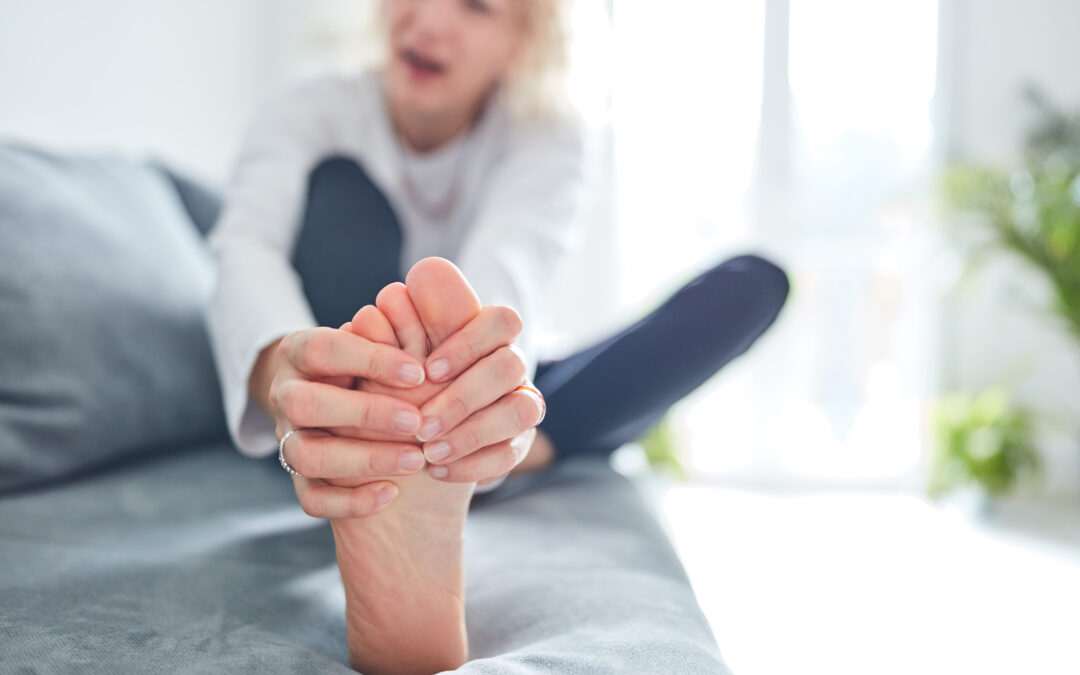Wound healing is slower in patients with diabetes because this disease prevents the body from properly handling sugar levels. Elevated glucose levels can cause damage to various systems in the human body. High blood glucose causes stiffening of the arteries, narrowing of blood vessels, and diabetic neuropathy, which can cause nerve damage throughout the body, especially the limbs. These effects of diabetes increase the risk around foot ulcers and other open wounds and also makes it more difficult for them to heal.
Diabetic foot ulcer treatment in Baltimore and surrounding areas is available at our many podiatry locations. Our board certified podiatrists conduct diabetic foot ulcer treatment safely and successfully. Wounds are a big concern for diabetic patients and they require a lot of attention. Even small cuts or blisters may quickly become more severe in diabetic patients. Ingrown toenails, skin ulcers, or calluses will also cause a breakdown of tissue and an increased risk of infection. That is why it’s so crucial to seek immediate treatment for diabetic wound care.
Loss of Feeling
Diabetic neuropathy can cause complications in patients and may delay the wound healing process as high blood sugar desolates the nerves. The nerve damage causes the patient’s limbs to become less sensitive to pain. Because of the loss of this sensation, the patient can easily overlook the onset of blisters, wounds or infections, which means the wound can worsen making it even harder to heal once it’s noticed.
Loss of Circulation
Wound healing also requires proper blood circulation, but due to diabetes the wound healing process is further delayed by circulation problems that prevent oxygen from reaching the wound. Elevated glucose levels also decrease the functioning of red blood cells that carry nutrients to the wound and also decrease the capacity of the white blood cells to fight infection. This further complicates the healing process. The elevated blood sugar levels lower the body’s capacity to fight infections, increasing the risk of getting infections.
Higher Risk of Wound Development
Patients with diabetes have a higher risk of foot ulcers, gangrene, sepsis, or bone infections like osteomyelitis. Diabetic foot ulcers get infected easily and become chronic causing complications like limb amputation. For this reason, the patient should be vigilant and do self-examinations daily to keep on the lookout for any signs of ulcers or wounds. They should focus on managing diabetes properly in order to improve the healing process for any current wounds. At the early onset of a wound, it is very important to see a podiatrist for effective foot ulcer treatment or wound care treatment in Baltimore. Diabetic foot ulcer treatment can be very effective and can help you minimize complications.
If you’re looking for diabetic foot ulcer treatment in Baltimore and the surrounding areas, then please don’t hesitate to schedule an appointment at one of our locations. Feel free to call our scheduling office to discuss your specific situation: (833) 500-FEET.
Time to See a Podiatrist?
If you have any of the issues described above, it’s time to consult an expert. Connect with Podiatry Associates for an evaluation. All of our doctors are board certified/qualified and we’re dedicated to preserving your foot health.
Other Related Articles:
- How Do You Treat an Ulcer? 5 Methods Explained
- How to Prevent & Treat Diabetic Foot Ulcers
- What is the Impact of Diabetes in Wound Healing?
- The Key Role of a Podiatrist in Diabetic Foot Care
- 9 Healthy Tips for Diabetic Foot Care
- What is Diabetic Foot Pain?
- What Diabetic Foot Care Treatments Are Best Left to Your Podiatrist?
- Can a Podiatrist Perform Surgery? What Types?
- When to See A Podiatrist
- Everything You Need to Know About a Podiatrist
- 11 Things Every Patient Should Know About Foot Surgery
Podiatry Associates of Bel Air
The best podiatrists in Bel Air, MD.
1 N Main St.
Bel Air, MD 21014
Phone: 410-879-1212
Podiatry Associates of Columbia
The best rated foot doctors in Columbia, MD.
5500 Knoll N Dr #440
Columbia, MD 21045
Phone: 410-730-0970
Podiatry Associates of Baltimore (Franklin Square)
The best podiatric surgery in Baltimore, MD.
9105 Franklin Square Dr #206
Baltimore, MD 21237
Phone: 410-574-3900
Podiatry Associates of Towson (GBMC)
The top rated foot and ankle doctors in Towson, MD.
6569 N Charles St # 702
Towson, MD 21204
Phone: 410-828-5420
Note: GBMC Physicians Pavilion West
Podiatry Associates of Baltimore (Medstar Good Samaritan Hospital)
The best rated foot doctors in Baltimore, MD.
5601 Loch Raven Blvd # 400
Baltimore, MD 21239
Phone: 410-433-2500
Podiatry Associates of Perry Hall
The best board certified podiatrists in Baltimore, MD.
9712 Belair Rd # Ll3
Baltimore, MD 21236
Phone: 410-256-6060
Podiatry Associates of Baltimore (UMD Midtown)
The highest rated foot doctors in Baltimore, MD.
827 Linden Ave
Baltimore, MD 21201
Phone: 410-462-5420
Podiatry Associates of Havre De Grace
The top rated foot doctors in Havre De Grace, MD.
1500 Blenheim, Farm Ln Suite C
Havre De Grace, MD 21078
Phone: 410-939-0055





